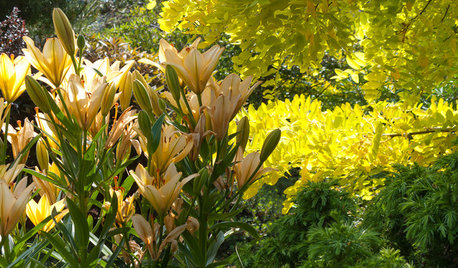My DH & I just hired an organic company to remediate our lawn (west of Houston area). The owner says it's not in as bad of shape as we were thinking and that it can be salvaged (we were considering the major $'s of having the old lawn taken out & a new one put in on top of organic amendments to the builder's crap dirt) .
While I do believe that the St. Augustine is fully capable of doing well with the right care & conditions, our front lawn is about 25% covered with an annoying little sedge called kyllinga (I call it pine needle sedge because it looks like pine needles growing up out of the ground).
And our back lawn is even worse (our backyard had no sod when we closed on our house & we ignorantly bought sod from a guy who knocked on our door). It has the pine needle sedge, another taller kind I haven't ID'd yet which has leaves similar to grass except that the tips are pointed & grow about 3x's as tall , but the WORST is the virginia buttonweed that has become well established in at least a dozen areas back there.
Our organic guy says that fixing the conditions to favor the St. Aug & not the sedges & buttonweed will get them under control. I would like to hear your opinions - especially if anyone has experience actually getting rid of these horrible lawn pests.
Is it possible to get rid of these without having to dig up the sod to get to those underground runners (which probably won't happen because we don't really have the time for that kind of intense labor)?









dchall_san_antonio
gracedunderpressureOriginal Author
Related Professionals
Camas Landscape Architects & Landscape Designers · Canton Landscape Contractors · Fishers Landscape Contractors · Fort Hunt Landscape Contractors · Fridley Landscape Contractors · Garland Landscape Contractors · Kettering Landscape Contractors · Tigard Landscape Contractors · Golden Valley Landscape Contractors · Indio Driveway Installation & Maintenance · Ridgefield Park Fence Contractors · Salt Lake City Fence Contractors · Tacoma Fence Contractors · Zachary Fence Contractors · Washington Fence Contractors